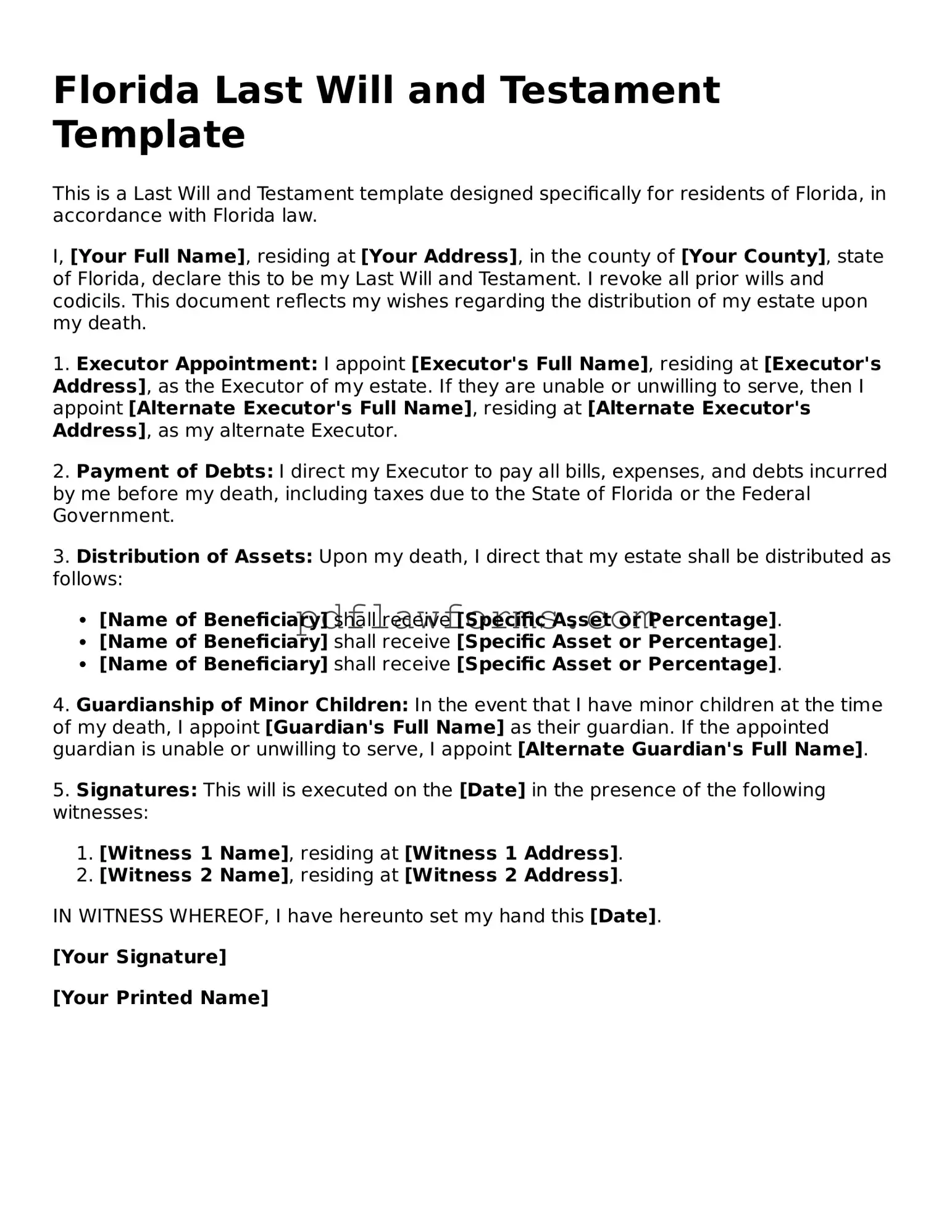Creating a Last Will and Testament is an important step in ensuring your wishes are honored after you pass away. However, many people make mistakes when filling out this document, which can lead to complications later on. Here are seven common errors to avoid.
One significant mistake is failing to properly identify the beneficiaries. It's crucial to clearly state who will inherit your assets. Vague descriptions can lead to confusion and disputes among family members. Always use full names and, if possible, include their relationship to you.
Another frequent error is not signing the will correctly. In Florida, a will must be signed in the presence of at least two witnesses. If this step is overlooked, the document may not be considered valid. Ensure that your witnesses are not beneficiaries, as this can complicate matters further.
Many individuals neglect to update their wills after major life events, such as marriage, divorce, or the birth of a child. These changes can significantly impact how your assets should be distributed. Regularly reviewing and updating your will ensures that it reflects your current wishes.
Some people mistakenly assume that a handwritten will is automatically valid. While Florida does recognize holographic wills (handwritten), they must meet specific criteria. If you choose to go this route, ensure that your handwriting is clear and that the document includes all necessary components.
Inadequate asset description is another common pitfall. Listing assets too vaguely can lead to disputes among heirs. Be specific about what you own, including property addresses, account numbers, and any other relevant details that can help in identifying your assets.
Failing to appoint a personal representative can also create issues. This person is responsible for managing your estate after your death. If you don’t designate someone, the court will appoint someone for you, which may not align with your wishes.
Lastly, many people forget to store their will in a safe yet accessible place. Leaving it in an obvious location or with a trusted family member can prevent it from being lost or overlooked. Consider giving a copy to your personal representative or attorney to ensure it is readily available when needed.
Avoiding these common mistakes can make a significant difference in how your estate is handled. Taking the time to carefully complete your Florida Last Will and Testament can save your loved ones from unnecessary stress during a difficult time.

